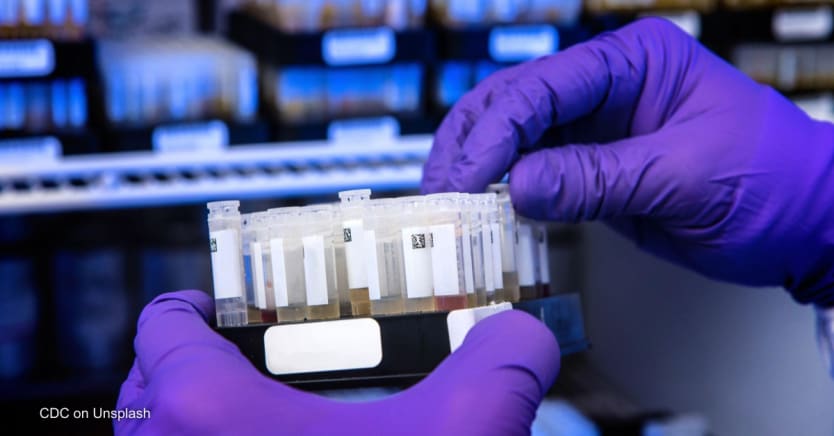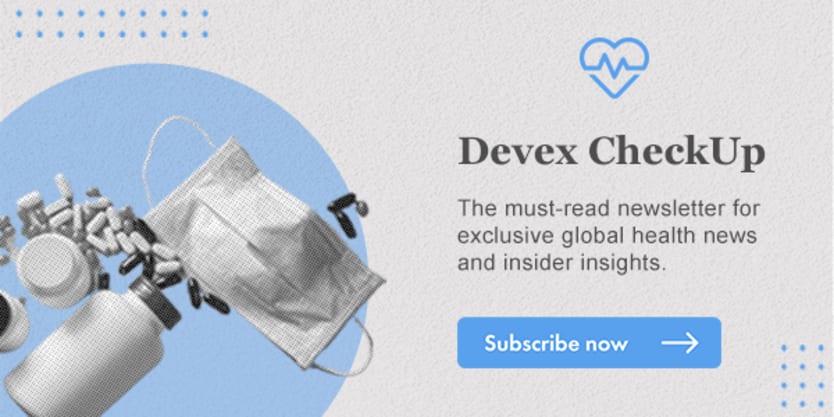Opinion: Here we go again … Pandemic preparedness financing

The World Bank Group’s board has agreed to host a new global financing facility for pandemic preparedness and response called the Financial Intermediary Fund. The World Bank’s commitment along with a range of G-20 donors to fund this effort is very welcome. The increasingly central partnership role for the World Health Organization is encouraging. However, critical decisions about the fund’s operation and governance remain under negotiation.
The question of who will be placed in decision-making roles is crucial. Will it be G-20 governments and wealthy private foundations, or will lower-income countries and civil society be given equal voice with full voting rights? The time to steer the governance model in the right direction is now.
The balance of seats for high-income country donors vis-a-vis other stakeholders contributing in kind — through increased domestic pandemic preparedness and response, or PPR, investment, or technical expertise, for example — is currently unclear.
Every day that these questions remain unresolved, the largely high-income country and private foundation donors continue to design the FIF and its operational modalities, including at a recent meeting in Europe.
This planning runs contrary to one of the Independent Panel for Pandemic Preparedness and Response’s core recommendations, which is that “for the best results, communities and civil societies should be partners early on in the design, planning, implementation, and assessment of such efforts on the international, national, and local levels.”
As others — including the WHO Council on the Economics of Health for All — have noted, pandemic preparedness and response is a global common good that demands universal participation and leadership from countries of all income levels and in all regions to be effective.
We need a global public investment approach to the supply of shared public goods, based on a model of ‘from each according to their means, to each according to their needs.’
—A mechanism that is driven mostly by the Group of Seven major economies or the larger Group of 20, with token or after-the-fact inclusion of lower-income countries or the deep expertise of independent global experts is likely to suffer from a legitimacy crisis. This will likely lead to unnecessary hurdles in the FIF’s earliest days.
Yet noteworthy innovations in inclusive global governance on which the FIF could build already exist. In recent years, multistakeholder governance approaches have proliferated around specific shared problems, such as tackling the extractive industries “resource curse” or opening up government to public scrutiny and participation.
Having government, civil society, and even industry as part of a shared governance structure may increase transaction costs in the short run, but in our experience, those are typically more than compensated for in terms of sustainability and scale of outcomes.
Indeed, the World Bank has been at the forefront of making this argument in recent years, noting that inclusive multistakeholder governance of data is essential for building trust and creating an environment for “people from LICs [lower-income countries] and LMICs [lower- to middle-income countries] to contribute meaningfully as ‘standard setters’ rather than as mere ‘standard takers.’”
The Extractive Industries Transparency Initiative experience has shown that a tripartite governance model, comprising government, civil society, and industry representatives, can help build genuine transparency around extractive sector activity and revenue flows. This is vital for building citizen trust and ensuring accountability, with the objective of combating corruption and making sure that citizens benefit from natural resource extraction.
The Open Government Partnership was founded in 2011 by eight governments and nine civil society leaders who came together to create a unique partnership where reformers in and out of government work together to create actionable commitments.
Today, the OGP works in 77 countries and 106 local jurisdictions and with thousands of civil society organizations. A multistakeholder governance model is a central feature of the OGP. It includes a rotating steering committee of governments at all income levels and civil society leaders from across the globe.
Having civil society sitting at the same table as governments has led to the creation of an Independent Reporting Mechanism, which provides independent, evidence-based, and objective reporting to hold OGP members accountable and support their open government efforts.
These are small examples, but they can be scaled. The new FIF has the chance to become a leading example of inclusive governance right now, but its design would need to be extensively modified. The FIF cannot afford to be stuck in the old ways of exclusive donor control, which skew incentives and risk entrenching false assumptions about primary PPR needs.
Instead, we need a global public investment approach to the supply of shared public goods, based on a model of “from each according to their means, to each according to their needs” and inclusive governance flowing from that. Lower-income countries may not be able to pay $50 million into the new FIF, but they can commit to increasing their domestic investment in health systems to strengthen them dramatically and in ways that close important PPR gaps and benefit everyone.
As Barbados Prime Minister Mia Amor Mottley recently noted when discussing the need to reform the global financial architecture: “We cannot continue to cement the inequalities of an old imperial order” as we respond to global challenges. If the new FIF is to help prevent future pandemic threats from materializing into catastrophic pandemics as COVID-19 did, then experience suggests that it will need recipient country governments and civil society sitting alongside donors, helping to shape collective strategies and decisions.

Search for articles
Most Read
- 1
- 2
- 3
- 4
- 5









